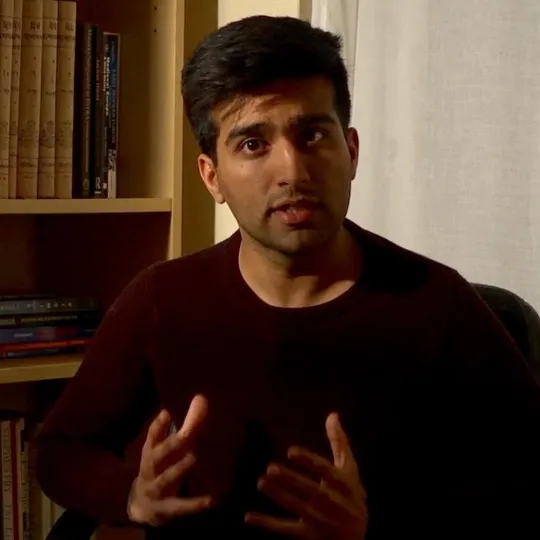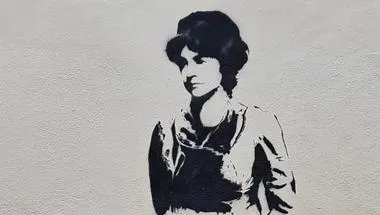
Dr Amar Sohal
Lecturer in the History of Political Thought
Biography
Amar Sohal is an intellectual historian of modern South Asia. He is interested in political ideas that continue to shape contemporary India and Pakistan. His research focuses on anti-colonial nationalism, religious politics, and the secular state.
Amar received his DPhil and MSt from the University of Oxford and his BA from University College London. He has a broad training in Indian history and political thought, as well as in Hindi and Urdu literature. Prior to joining King’s, Amar was an Early-Career Research Fellow at Corpus Christi College, Cambridge, where he revised his DPhil dissertation for a monograph, The Muslim Secular: Parity and the Politics of India’s Partition (Oxford University Press, 2023). It examines the political thought of three eminent Indian Muslim nationalists of the twentieth century—Abul Kalam Azad, Sheikh Abdullah, and Abdul Ghaffar Khan. Amar argues for the presence of a distinct Muslim secularity within the grander intellectual family of secular Indian nationalism.
Amar’s work has been published in leading academic journals: Modern Intellectual History, Global Intellectual History, and South Asia: Journal of South Asian Studies. He has edited two special issues of Global Intellectual History.
The first of these article collections, co-edited with Taushif Kara and published in 2022, is titled “Refusing Minority, Recasting Islam”. It argues that the Indian political was constitutive of a wider debate about Muslim minorityhood during the twentieth century. Stretching from Africa to China, this debate was liberated from any regional silo. In 2025, Amar published his second collection titled “India in Miniature: Kashmir and the History of Political Thought, 1931-1965”. It contends that Kashmir encapsulates the scale and diversity of the Indian subcontinent. Consequently, this erstwhile princely state surpasses its peripheral status to emerge as a central site for generalisable political imaginings.
Amar is a Fellow of the Royal Historical Society.
Research interests and PhD supervision
Unlike in Europe where political thought has been associated with systematic theorists operating beyond the realm of political practice, in India it has belonged to political (and especially anti-colonial) actors who were interested in changing the destiny of their country. Until recently, a dominant empirical approach to writing about Indian nationalists had obscured this rich but neglected body of political thought. Amar’s work contributes to an emerging scholarship committed to understanding these figures as political thinkers. It seeks, therefore, to not only fill a historiographical void, but to use this neglected thought to participate in a present-day discussion about the political in South Asia.
Amar is currently exploring how a set of Hindu nationalists engaged in fraught experiments with conservatism, non-violence, and ideas of Pakistan.
Amar welcomes proposals from prospective research students interested in any aspect of South Asian political thought.
Teaching
Amar teaches Indian and global anti-colonial political thought, as well as European intellectual history.
Expertise and public engagement
Amar continues to give regular public talks and offers his expertise on television programmes, podcasts, and in the written press. In 2016, he scripted and anchored an hour-long documentary film, Azad and Jinnah: A Political Rivalry in Late Colonial India. It features dramatisations, interviews with leading academics, and some of Amar’s initial doctoral research. A rare attempt at bringing competing, pre-Partition visions of an Indian Muslim future to a wider, non-specialist audience, this documentary has also been integrated into undergraduate curricula across the globe.
Selected publications
-
The Muslim Secular: Parity and the Politics of India’s Partition, (Oxford: Oxford University Press, 2023).
-
“Kashmir Without History: Sheikh Abdullah, Jinnah and the Partition of India,” Global Intellectual History, (2025), 1-35.
-
“Pure Kashmir: Nature, Freedom and Counternationalism,” Modern Intellectual History, 19/4 (2022), 1106-33.
-
“Kashmiri Secularism: Religious Politics in the Age of Democracy,” Global Intellectual History, 7/6 (2022), 994-1015.
-
“Ideas of Parity: Muslims, Sikhs and the 1946 Cabinet Mission Plan,” South Asia: Journal of South Asian Studies, 40/4 (2017), 706-22.
Research

History of Political Thought
Collective strength in the history of political thought, united by a shared belief in the power of ideas and texts.
Research

History of Political Thought
Collective strength in the history of political thought, united by a shared belief in the power of ideas and texts.
